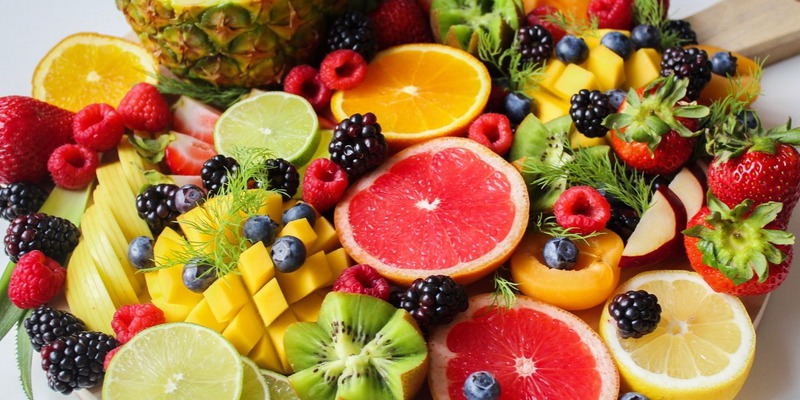What is a balanced diet?

A balanced diet is one that provides your body with the nutrients it needs to function properly. To eat right, you should consume the majority of your daily calories in the following forms:
- fresh fruits
- fresh vegetables
- whole grains
- legumes
- nuts
- lean proteins
About calories
The number of calories in a food is a measure of the amount of energy stored in that food. Your body uses calories from food for walking, thinking, breathing, and other important functions. The average person needs to eat about 2,000 calories a day to maintain their weight. However, a person's specific daily calorie intake can vary depending on age, gender, and physical activity. Men generally need more calories than women, and people who exercise need more calories than people who do not exercise.
The source of your daily calories is just as important as the number of calories you consume. You should limit your consumption of empty calories, those that provide little or no nutritional value. Empty calories are defined as those calories that come from sugars and solid fats, such as butter and shortening.
Empty calories are most commonly consumed in the following forms:
- Bacon
- Sausages
- Cake
- Cheese
- Cookies
- Donuts
- Energy drinks
- Fruit drinks
- Ice cream
- Pizza
- Sports drinks and lemonades
Why a balanced diet is important
A balanced diet is important because your organs and tissues need proper nutrition to work effectively. Without good nutrition, your body is more susceptible to disease, infection, fatigue, and poor performance. Children with poor nutrition are at risk for growth and development problems and poor academic performance, and poor eating habits can persist for the rest of their lives. Learn more about healthy meal plans for kids.
The rise in obesity and diabetes is a prime example of the effects of poor nutrition and lack of exercise. It is reported that 4 of the top 10 causes of death are directly influenced by diet. These are:
- Heart disease
- Cancer
- Stroke
- Diabetes
How to achieve a balanced diet
A balanced diet focuses on foods that are low in unnecessary fats and sugars and high in vitamins, minerals and other nutrients. The following food groups are essential components of a balanced diet.
Fruits

Fruits are not only a great source of nutrition, but also a tasty snack. Choose fruits that are in season in your region. They are fresher and provide the most nutrients. Fruits have a high sugar content. However, this sugar is natural, so fruit can still be a better choice for you than other foods with added sugar. If you're watching your sugar intake or have a condition like diabetes, you may want to opt for low-sugar fruits. People who are watching their carbohydrate intake can reach for fruits like melons and avocados.
Vegetables
Vegetables are the main source of essential vitamins and minerals. Dark, leafy greens generally contain the most nutrients and can be consumed at any meal. Eating a variety of vegetables will help you get the rich nutrients that all vegetables provide.
Examples of dark leafy greens include:
- Spinach
- kale
- green beans
- broccoli
- Collard greens
- chard
- Grains
Refined white flour is consumed more than any other grain. Refined white flour has poor nutritional value because the hull of the grain, or the outer covering, is removed during the refining process. The hull is where most of the grain's nutrients are located. Whole grains, however, are prepared using the entire grain, including the hull. They provide much more nutrients. Try switching from white breads and pastas to whole grains.
Protein
Meats and beans are primary sources of protein, a nutrient essential for proper muscle and brain development. Lean, low-fat meats such as chicken, fish and certain cuts of pork and beef are the best options. Removing the skin and trimming visible fat are easy ways to reduce the amount of fat and cholesterol in meat. The health and nutrition of the animal are important and affect the fatty acid profile of the meat, so choosing grass-fed is ideal.
Nuts and beans are good sources of protein and contain many other health benefits as well as fiber and other nutrients. Try eating the following:
- Lentils
- Beans
- Peas
- Almonds
- Sunflower seeds
- Walnuts
Tofu, tempeh and other soy-based products are excellent sources of protein and a healthy alternative to meat.
Dairy
Dairy products provide calcium, vitamin D and other important nutrients. However, they are also an important source of fat, so it may be best to choose small portions of full-fat cheese and reduced-fat or fat-free milk and yogurt. Plant-based milks, such as those made from flaxseed, almonds or soy, are usually fortified with calcium and other nutrients, making them an excellent alternative to milk from cows.
Oils

Oils should be used sparingly. Opt for low-fat and low-sugar versions of products that contain oil, such as salad dressings and mayonnaise. Good oils, such as olive oil, can replace fattier vegetable oils in your diet. Avoid fried foods because they contain a lot of empty calories.
In addition to including certain foods in your diet, you should also reduce your consumption of certain substances to maintain a balanced diet and a healthy weight. These include:
- Alcohol
- refined grains
- solid fats
- saturated fats
- trans fats
- salt
- Sugar
More information
Always consult your healthcare provider to ensure that the information displayed on this page applies to your personal circumstances.


















